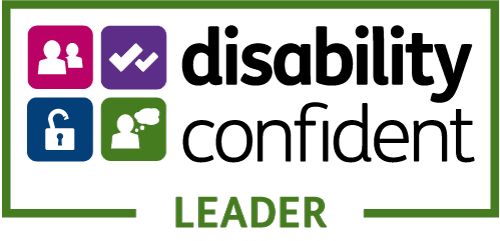We’re here to help you understand the assessment process. This is a good place to start if you are looking for answers to your questions. You may contact us by telephone: 0800 288 8777 or by email(link sends e-mail). Our Customer Relations team is available Monday to Friday from 8am to 8pm, and Saturdays 9am to 5pm.
For most benefits, including Employment and Support Allowance, the assessor will be trying to understand a person’s functional ability and mapping that against suitability for some work related tasks. Clarification of diagnosis and treatment can be very helpful but we are especially interested to hear how your patient is affected in their physical, mental and cognitive abilities. We understand that the nature of medical records can mean that functional information is not always readily available but we would be glad to receive any medical information you can provide.
Sometimes the request you receive will be more specific in what is asked for and can be self explanatory.
It is helpful to have copies of clinic letters and/or letters of clinical diagnosis, other evidence and as much information as you feel able to provide. This verifies what your patient has told us in their application form, and may help us make a recommendation without needing to trouble your patient to attend for an assessment in person. The more information we have, the more we can help give the best advice to the Department for Work and Pensions so they can make a correct decision.
The assessor will be a doctor, nurse or physiotherapist trained in assessing functional abilities. Their job is to provide an opinion to a DWP Decision Maker who will then decide on benefit entitlement and also access to support in order to encourage a return to work through a series of supported steps where appropriate.
Your patients fill in an application form to help us but we often need some clarification or further details. That is why we ask you for reports. The more information you can provide, the more likely we are to be able to advise correctly and possibly without troubling your patient to attend an assessment in person.
We need some idea of their level of risk of self-harm or other anti-social behaviours and their ability to interact with other people in a work environment. In particular, if people might have difficulties with insight or being able to give an accurate account of their abilities.
We need information about your patient’s ability to interact with other people and their ability to enter the job market. You may have information from other health and social care professionals which would be helpful and you may wish to send. The more information you can provide, the more likely we can advise correctly and possibly without troubling your patient to attend an assessment in person.
No. The clinician doing the assessment will be seeking further evidence and, in general, the GP will be in the best position or have access to the relevant records. However, we appreciate that Healthcare Professionals may work in teams. If another professional has more appropriate knowledge we would be glad to receive their report either as well or instead. In fact, we are also happy to receive information from non-healthcare professionals who might be able to provide additional information. This includes information from friends, relatives and carers where appropriate.
Your reports come through to a Healthcare Professional to read. This helps decide whether or not your patient will need to attend in person. The report will also be available during the face-to-face assessment so your patient will be able to add to or clarify any details. This helps the Healthcare Professional to provide sound and well reasoned advice to the DWP Decision Makers who can then make decisions appropriately and offer access to work related activity where appropriate. The Decision Makers at DWP also have access to your report when they reach their final decision.
The reports are then filed by DWP under their Data Protection Policy. Information about the DWP Data Protection Policy can be found here(link is external).
The report may also be used again if there is an appeal or reconsideration.
We understand this is time-consuming. There are a number of reasons this might happen.
Sometimes your patient may be making repeated claims for benefit and we are required to consider each application separately. This requires us to ask for updated information each time, just in case circumstances have changed.
Sometimes it is because your patient will have applied for different types of benefits. Currently, the systems for administering benefits do not support sharing of reports across different streams. In addition, some benefit types require different types of information. For example, some are more focused towards medical diagnosis and treatment, while some are more towards functional capability.
Reports are not stored by Centre for Health and Disability Assessments (CHDA) so the assessing Healthcare Professional is unlikely to have access to reports from previous occasions. The reports are stored by the Department for Work and Pensions and not available to CHDA.
Providing medical evidence for some benefit types related to fitness for occupation are already covered as part of the NHS GP contract and therefore attract no additional fee. Employment and Support Allowance is such a benefit and no fee is payable. Some other benefits, such as PIP, are not covered by the NHS contract and therefore attract a specific fee.
Employment and Support Allowance (ESA) is a benefit for people unable to work due to health problems. Your patient’s functional abilities are assessed against a set of criteria set by government. One of the key things to know as a GP is that the assessment is based around the ability to perform a wide range of work-related activity, and not linked in any way to your patient’s usual or previous occupation.
You can apply for ESA if you’re employed, self-employed or unemployed. More information about ESA can be found here(link is external).
As part of your patient’s claim for ESA, we need to know more about your patient’s functional capabilities. The assessment will allow us to find out more about how their condition or conditions affect them. The “Fit note” allows access to statutory sick pay for a period of time. This is based around your patient’s ability to perform their own job. After this time, continued access to financial support and other services designed to promote return to work is based around ability to engage in a much wider range of work or work-related activity and not linked to a specific occupation.
A person can apply for ESA if they are employed, self-employed or unemployed. They may be transferred to ESA if they have been claiming other benefits like Income Support or Incapacity Benefits. For an overview of ESA please visit the DWP website(link is external).
We have positions for part time and full time employees. We also have vacancies for sessional work across of range of benefits, for example industrial industry or the Veterans Agency.

